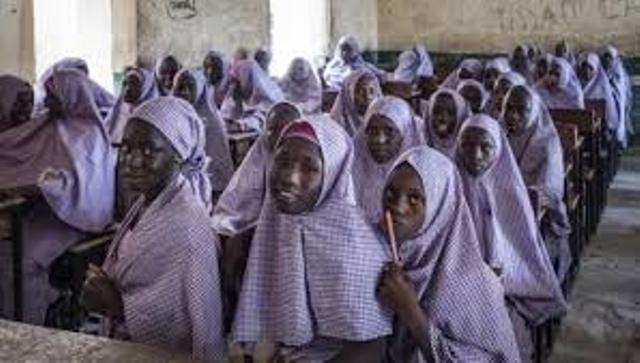Over N500 million was paid to secure freedom for the 279 kidnapped students of Government Girls’ Secondary School, Jangebe in Talatu-Mafara local government area of Zamfara State.
In addition, 30 notorious bandits were swapped with the school children whisked away on February 26, 2021 by heavily armed men who invaded their hostels.
The state governor, Dr Bello Matawalle announced the release of the girls via his official Twitter handle on Tuesday.
Although he denied that ransom was paid, NewsGazette learnt that over N500 million was paid to the brigands, in addition to the exchange of 30 deadly bandits.
“Yes, the Jangebe schoolgirls have been freed and they are back. We thank God for that. However, nothing goes for nothing. Some money, over N500 million went into the bargain in addition to the release of 30 notorious criminals which the head of the bandits gave as condition for the freedom of the schoolgirls,” said a source.
On why money was still paid despite the agreement to release some bandits who were arrested, the source said: “When you are already in the mouth of a lion, it is foolhardy to show bravery. It makes sense to massage the mane of the animal so that it lets its hold on you. The girls were in danger and for the government to get them back to their parents it had to negotiate from the position of weakness, especially as the state of the girls most of whom are hardly weaned could not be toyed with.”
Meanwhile, Matawalle who received the girls around 5 am on Tuesday in Gusau, said they were returned safely.
He said 279 schoolgirls were released after “scaling several hurdles”.
“Alhamdulillah! It gladdens my heart to announce the release of the abducted students of GGSS Jangebe from captivity. This follows the scaling of several hurdles laid against our efforts. I enjoin all well-meaning Nigerians to rejoice with us as our daughters are now safe,” he tweeted.
The governor also described the process of securing the kidnapped schoolgirls as “exhausting”, noting that he was “very devastated” over the incident.
He added that efforts would be made to convince bandits to accept a peace deal,
“We want to bring everybody on board.
“This is the result of our peace effort and putting to shame all those saying there is no security in this country.
“We have been in discussion since Friday with the abductors and reached an agreement on Monday by 4 pm that the girls were released.”
State officials initially said 317 girls were kidnapped but the governor said on the actual number was 279.
“They have just arrived in the government house and are in good health,” Matawalle said.
Armed gangs
Heavily armed criminal gangs in northwest and central Nigeria have stepped up attacks in recent years, kidnapping for ransom, raping and pillaging.
The Nigerian military deployed to the area in 2016 and a peace deal with bandits was signed in 2019 but attacks have continued.
In December, more than 300 boys were kidnapped from a school in Kankara, in President Muhammadu Buhari’s home state of Katsina, while he was visiting the region.
The boys were later released but the incident triggered outrage and memories of the kidnappings of 276 schoolgirls by jihadists in Chibok.
Many of those girls are still missing.
The gangs are largely driven by financial motives and have no known ideological leanings.
But there are concerns they are being infiltrated by armed Islamists. The jihadists’ decade-old conflict has killed more than 30,000 people and spread into neighbouring Niger, Chad and Cameroon.
Authorities have denied paying any ransom to secure the recent releases, although analysts say this is unlikely and security experts fear that this will lead to an increase in kidnappings in these regions plagued by extreme poverty.
President Buhari, who has been criticised for failing to deal with the unrest, had insisted that he would “not succumb to blackmail by bandits”.
Kidnapping for ransom in Africa’s most populous country is already a widespread national problem, with businessmen, officials and ordinary citizens snatched from the streets.
At least $11 million was paid to kidnappers between January 2016 and March 2020, according to SB Morgen, a Lagos-based geopolitical research consultancy.
The student abductions have increased the number of children who cannot attend school, especially girls.
The regions involved account for the greatest number of unschooled children in the world, the Brussels-based International Crisis Group says.
With AFP report



























































